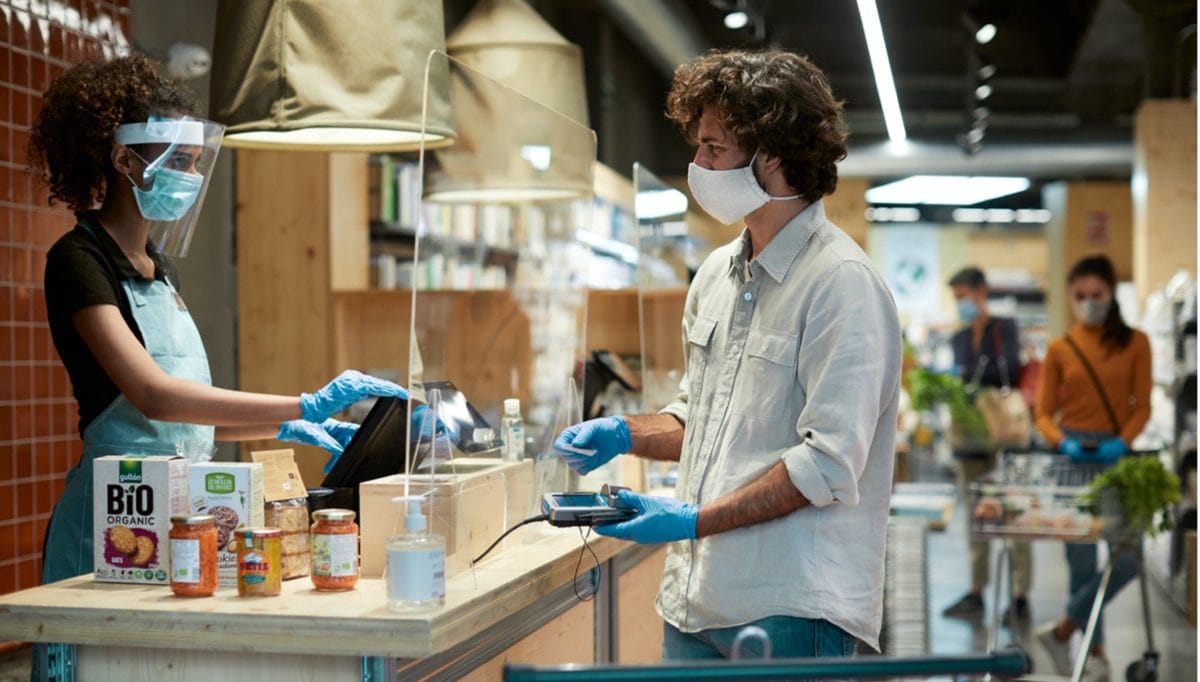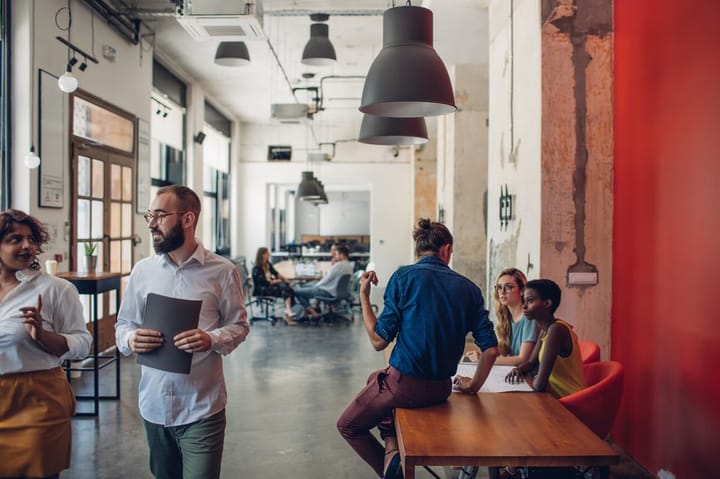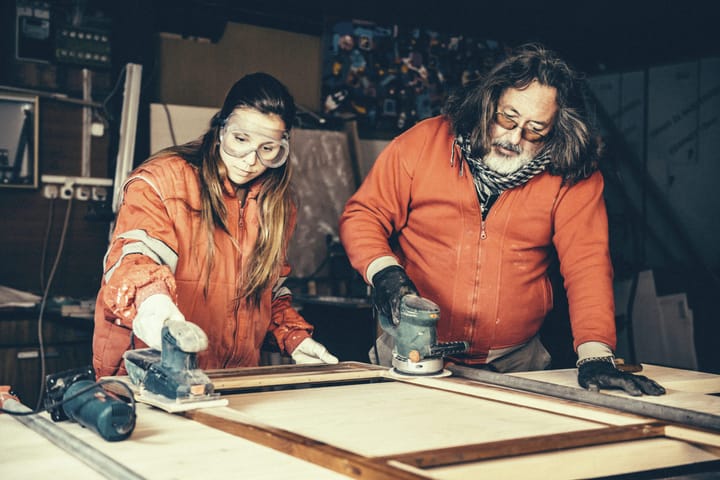Lessons to guide a local economic COVID recovery

In this post I describe a number of lessons we can draw from our COVID-19 response to help guide a local economic recovery. I look at responses that appear have worked and make four suggestions for placed-based responses.
We are not past this crisis by any measure. But there are important lessons we can draw to guide our way forward.
This post draws from my regular newsletter on My Place Matters. You can subscribe to my newsletter HERE.
Tracking local economic COVID responses
I’ve been tracking some of the most notable local COVID-19 responses.
Unlike many other places in the world, Australia has done well in containing COVID-19 and is beginning to move out of its lock-down. Attention is now turning to recovery.
I’ve spoken to various colleagues in agencies around the world about their response to the crisis. Many are brushing up their pre-COVID-19 policy messages and repacking them; others are taking a more thoughtful approach. They are assessing the impact of the pandemic and charting a new way forward.
Here are some of the main lessons I think we can draw so far.
Nothing beats good leadership
Quite apart from the stark comparisons that can be made in the styles and competencies of national leaders around the world––and our state premiers––it’s clear that good local leadership is important. Australian governments have acted responsibly and been guided by science on COVID-19.
Around the country, local leaders have been tested by this crisis. Good leaders have acted quickly, built consensus and shown compassion. We’ve seen standout mayors, business leaders and private citizens who have led the way. These people have given us hope and sought pragmatic solutions informed by emerging evidence.
Connecting with the local business community is essential
A crisis will always find the weak points in our systems. For many localities, this weakness is the poor levels of connection between governments and business.
As local policymakers considered their response to national lockdown, those that made the right decisions were closely connected with their business community. They quickly connected with business––asked questions. Listened.
Some councils initiated online surveys, others consulted with local business representatives, others scratched their heads and then decided they knew what was best for business community. It wasn’t always best.
I was inspired by the City of Karratha in WA’s northwest. It used redeployed staff to call over 400 local business in the midst of the lockdown to ask them how they were doing and ensure they were aware of federal and state government assistance packages.
Sadly, many of the businesses I spoke to in the lock down had no direct communication from their local council and were just doing whatever they could, based on advice from their peers.
Local governments, public agencies, business and community organisations should constantly monitor changes in the local business sector and develop responses based on this analysis.
It’s important to act quickly, not just look busy
Many local policymakers and leaders understood the need to act quickly when the pandemic hit our shores. The smart ones aligned their immediate actions with their own understanding of the local economy and its specific strengths and weaknesses.
I was a little surprised with the number of councils that quickly announced free local parking. Who asked for this? (As with anything given away for free, it’s hard to complain. And it was a symbolic gesture so I wouldn’t dismiss it too quickly.) I was more impressed with those councils that altered parking zones to rapidly accommodate short-term parking for click-and-go shopping, takeaways, etc. These councils saw that business were reconfiguring their business models by providing takeaway and delivery services.
Similarly, while some councils offered grants to any local businesses affected by the lockdown, others were more focused. They provided financial and technical advice to businesses that wanted to quickly transition to online business platforms. City of Melbourne is a good example.
Offering any kind of support for free can be helpful––especially in times of crisis. But targeting this support to those most affected or those taking initiative in response to the crisis builds local resilience. It also creates more value for the public money invested. Understand what is driving your local response and set a clear course.
Local entrepreneurs are to be celebrated
What’s the difference between a business manager and an entrepreneur? Managers are risk averse and focused on limiting damage in a crisis. Entrepreneurs look at crisis as an opportunity. They are quick to respond to change and reorient toward a new market opportunity.
We’ve seen some great, creative responses by local entrepreneurs to this pandemic: shopping by appointment, door-to-door deliveries, stronger customer engagement… among many others.
This is testament to the need to nourish and celebrate our entrepreneurs––including the social entrepreneurs––who have leaned into the challenges we’ve faced and found new solutions.
Local governments need to strengthen the entrepreneurial response. See what is working in the business community and amplify it.
Go digital
Without doubt, a major result of the pandemic and the need for social distancing is the shift towards digitalisation and the use of online platforms for a wide range of transactions. Not only are businesses doing this, but governments too are recognising the value in going paperless.
This affects many areas of local governance, including the introduction of e-planning processes, online licenses and permits, digital (contactless) parking apps, better use of online communications and dialogue platforms, among many others.
Local stimulus goes beyond infrastructure
Many councils are fast-tracking their infrastructure projects to help stimulate the economy. This is useful, but not all local economies will benefit in the same way.
Here, local policymakers need to consider how they can make their place more competitive and resilient. Competitiveness goes beyond what we inherit, to what we can create. We need to look at our local places and work out who has been most effected and how to stimulate new activity and investment.
In some cases, this will be the arts sector, which has been badly hit. See how Cairns is positioning itself to become the ‘Arts and Cultural Capital of Northern Australia’ and promoting ‘arts in the time of coronavirus‘. Also see the Resilient Hobart Grants. In others it will be tourism––also badly hit. Retail and hospitality have been affected across the board. The real effect of the crisis won’t be fully felt in these sectors until the Job Keeper program comes to an end.
The crisis will have pushed many beyond the tipping point and there will be no recovery to stimulate for many. This means the stimulus is more than a bounce-back, it is a time for transition.
Build back better
We’re hearing this a lot at the moment, and it’s true. There’s nothing like a crisis to get us all to rethink how we do things. Business-as-usual is not the future.
Moving forward, we need to find better ways of doing things. We need to build greater resilience in our local economies to manage crisis. We need to be watching out for the most vulnerable. In this crisis it’s the elderly and the homeless. Moving forward, it’s going to include the unemployed and under-employed, it’s going to include those who need to reskill and transition to new industries. Where we live, work and invest matters when it comes to addressing these challenges.
On the bright side, this transition is toward a more renewable economy, bringing new skills, investments and business models. We can do more with less and use local policies and regulations to drive economic growth while sustaining the social and environmental goods we all enjoy.
Are our local economic strategies fit for purpose?
Very few of the 200+ local economic strategies in Australia–see the MyPlaceMatters database Local Economic Strategies–mention the word coronavirus. They make very little reference to local vulnerabilities to external shocks. This should change.
We need to reconsider our approaches to supporting local economic development and not be content with what we’ve done in the past.
Four pieces of advice
There are four pieces of advice I’d offer for those local councils seeking to recover over the next few months.
- Connect with your local business community––and don’t overdo one-off surveys. Face-to-face conversations and drop-in discussions are crucial. Make it a two-way thing and listen before talking. Then repeat.
- Redefine what makes your place special, not based on its natural features, which you can’t change, but based on what you can change. Build your competitive advantage.
- Consider a whole of council response. Despite the economic impact, your economic development team won’t have all the answers. Make sure all tools available are used: from community services, to health, parking, and procurement.
- Don’t assume we’re out of this yet. If its not a second wave, there are other external shocks coming (just think climate change and bush fires). Local resilience is about our ability to respond to any number of problems.
Feel free to share any of your own thoughts on what you’ve learned in this period and how we navigate ahead.
Get in touch!
If this post deals with issues of interest to you or you want to talk more about developing a COVID-19 response for your local economy, then feel free to get in touch.
Also, check out the MyPlaceMatters website.
Simon White
Economic Growth | Business Development | Job Creation


